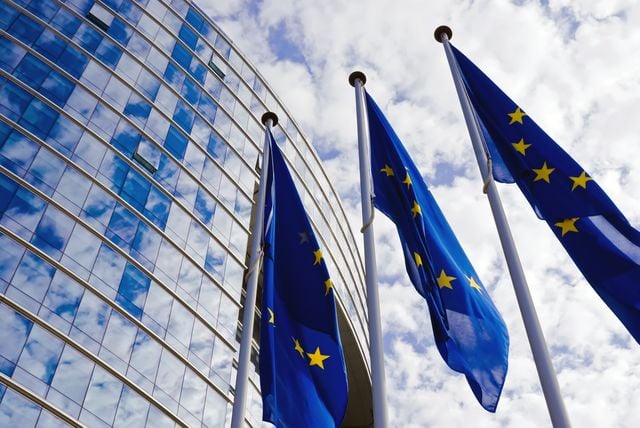On Monday, the Responsible Business Alliance hosted a stellar event in Brussels, Driving Effective Due Diligence: Omnibus Unpacked. This waitlisted, standing room-only event – co-hosted with the European People’s Party, included participants from the European Parliament and Commission, other policymakers, industry and civil society, among others.
Here’s what we think were the top discussion points and take-aways from the half-day event:
- It was loud and clear from many participants that CSDDD needs to be grounded in a more flexible risk-based approach aligned with international standards that lets companies prioritize due diligence in a manner tailored to their own facts and circumstances. Consistent with the concerns that we have been hearing since the Omnibus proposal came out, there were significant concerns by many in the room in Brussels that the tier 1/upper-tier plausible information construct proposed by the Commission is a blunt approach that will be burdensome, ineffective and hard to apply in practice and may even discourage upper-tier risk assessments. In this regard, the similar German LkSG risk assessment approach was cited as being too bureaucratic. Some proponents of a more flexible, risk-based approach expressed the view that this is necessary for due diligence to be feasible, scalable, practical and impactful. For a detailed discussion of the Omnibus proposals, see this Ropes & Gray post.
- Collectively developed tools and solutions – including digital tools – have an important role to play to reduce burdens on companies and more effectively achieve the goals of the legislation. Of course RBA and others already have started this work, and the Responsible Minerals Initiative (an RBA initiative) developed the industry-wide approach for addressing conflict minerals due diligence starting more than 15 years ago.
- Over and over, the need for a holistic approach to EU due diligence requirements came up. Several participants expressed the view that sector-specific laws requiring due diligence – such as those pertaining to deforestation, conflict minerals and batteries – need to also be addressed and aligned with the CSDDD and each other. This is part of the “fleet of omnibuses” that came up several times throughout the day. It is an encouraging sign that at least in principle there seems to be broad consensus that greater regulatory harmonization is important and should be pursued.
- A frequent criticism of CSDDD 1.0 is the contemplated lag time in the development of due diligence guidelines. It was welcome news to hear from the Commission that they are developing guidelines in parallel with the negotiation of the Omnibus proposals. The acceleration of guidelines coupled with the proposed one-year compliance delay for the first wave of CSDDD companies will enable more efficient, effective compliance planning by companies. Some participants underscored the need for Commission guidelines to take market practice into account.
- Although there was broad consensus in the room on getting CSDDD right, there are unfortunately very different views on what “right” should look like. The Omnibus is politically charged, with significant disagreement in Parliament over the approach to due diligence and civil liability, among other aspects of the proposals. Some participating members of Parliament noted that the contours of CSDDD 2.0 ultimately will be a function of the coalition that needs to be built to get a proposal passed. This runs the risk that the outcome for business will be different, not necessarily better, or at least not reflective of general business community sentiment. And, there were of course many different views expressed by participants on the Omnibus proposal, the current CSDDD, SME due diligence and, at the macro level, putting more of the burden for addressing adverse impacts on the state rather than the business community.
- Last but not least, and maybe the only area of unanimity, the RBA should be commended for putting together a great event in a short amount of time. The speakers and panels brought a range of important, thoughtful perspectives that will help focus the debate over the Omnibus and shape its ultimate outcome.
About our Practice
Ropes & Gray has a leading ESG, CSR and business and human rights compliance practice. We offer clients a comprehensive approach in these subject areas through a global team with members in the United States, Europe and Asia. Senior members of the practice have advised on these matters for more than 30 years, enabling us to provide a long-term perspective and depth and breadth of experience that few firms can match. For further information on the practice, click here
Subscribe to Ropes & Gray Viewpoints by topic here.
Authors
Stay Up To Date with Ropes & Gray
Ropes & Gray attorneys provide timely analysis on legal developments, court decisions and changes in legislation and regulations.
Stay in the loop with all things Ropes & Gray, and find out more about our people, culture, initiatives and everything that’s happening.
We regularly notify our clients and contacts of significant legal developments, news, webinars and teleconferences that affect their industries.


